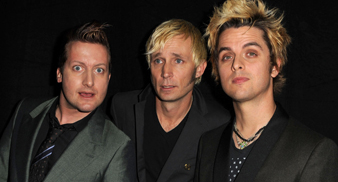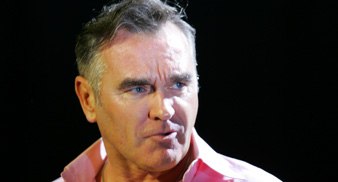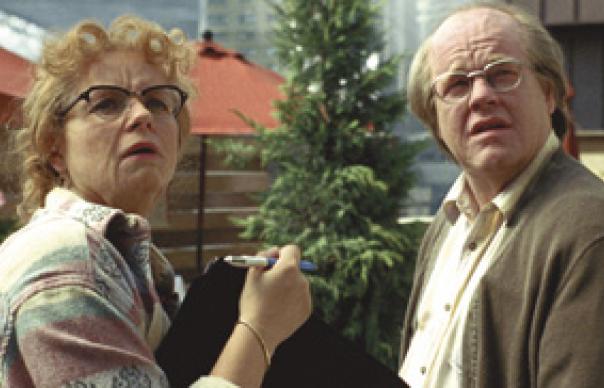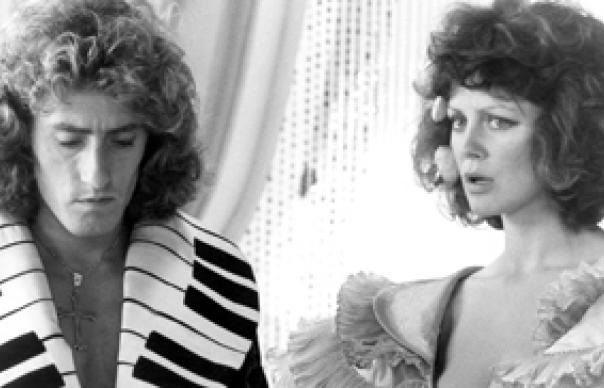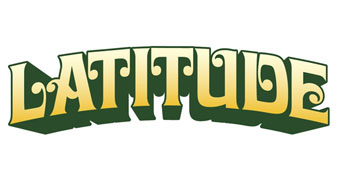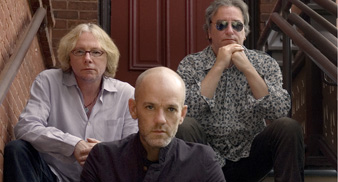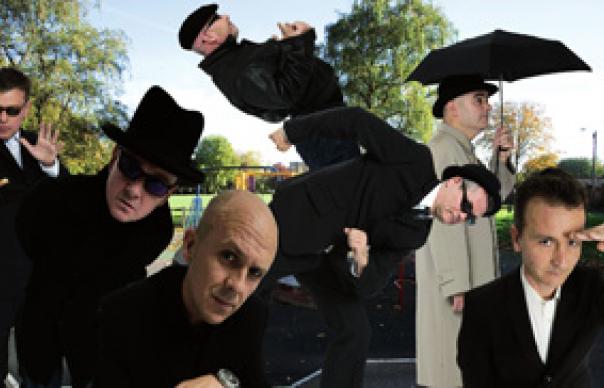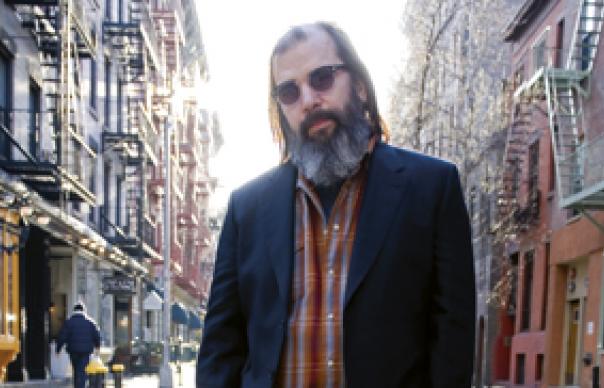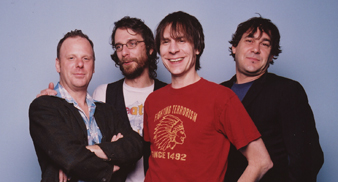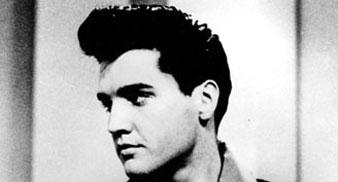This month's Club Uncut openers, Sparrow And The Workshop, are an interesting beast - a Scottish folk trio on mainly acoustic instruments, there's a real violent attack to their sound. Mesmerising frontwoman Jill O'Sullivan plays guitar and violin and sings, drummer Gregor Donaldson also delivers strong harmonies and Nicholas Packer takes on the electric guitar and bass duties – at one point, he even appears to be playing a guitar with a bass string in place of the lowest E. The Borderline is only half full by the time they begin, but the latecomers are definitely missing a treat. The group's opening track is reminiscent of Calexico in its scurrying Tex-Mex chords, with Donaldson's drums exhibiting a booming Jim White sound. "I Will Break You", dedicated to “London's traffic wardens”, is a menacing Smog-esque ditty, featuring dirty bass guitar and some shockingly loud drum rolls, while Chicago native O'Sullivan's voice at times is almost like a sweeter Polly Harvey on "Devil Song". Some brave influences then, but Sparrow And The Workshop seem to have carved themselves their own – surprisingly rocking - niche. A real treat, and one of the best openers Club Uncut has had. Next up were Django Django, sporting the east London hipster haircut du jour (very short back and sides, longer on top, in case anyone fancies it) and 'wacky' shirts fully buttoned up. Very Hoxton, then – aside from the vintage Juno synth propped up over a chair rather than an actual stand. The four-piece are an interesting mix of electronics and jerky, almost rock'n'roll, chords, occasionally with a Bo Diddley-esque rhythm chucked in. "Fire Water" is probably the highlight, with a gorgeous Beck-like chorus and twisty melody. Not all the set is as memorable, however. Perhaps it was the sound on the night, but the synth, samples and electronic drum pads were far louder than the real drums, electric guitar and bass. It may have been a conscious choice too, but their Fender Mustang sounded weak, clanging away almost unheard. The four-piece aren't short of interesting ideas or ultra-catchy melodies, they may just need to perfect their arrangements. Headlining the night were Stephen McBean's Black Mountain spin-off Pink Mountaintops, who recently released their third album, "Outside Love", on Jagjaguwar. Their clear signature sound is a chugging three-chord Velvet Underground drone-rock, with a dose of country-rock harmonies and some mystical-sexual lyrics sprinkled in – definitely in the same ballpark as their parent band, just a bit more reined-in, a little more in thrall to classic rock. "Sweet '69" and "The Gayest Of Sunbeams" are sexually-charged gallops through Jesus And Mary Chain territory, with driving Motorhead bass and the kind of vocal delivery so beloved of The Brian Jonestown Massacre and Black Rebel Motorcycle Club. Organ, messy John Cale violin (rather than the Velvets' viola, of course) and a myriad of percussion contribute to the massive, dense noise. It's a powerful sound, but it's their only sound. Too many songs are based on the same three or four chords, and after a while it's pretty easy to guess where the changes are going to come. For a band so obviously in thrall to psychedelia, there's a distinct lack of solos from any instrument too, which would perhaps have helped sustain interest over the full hour of their set. But hey, an audience member next to us kept proclaiming Pink Mountaintops, “genius...genius” in between their songs, and the six-piece were forced to return for a hasty encore after the crowd's enthusiastic reception. Breaking the curfew - now that's rock and roll.
This month’s Club Uncut openers, Sparrow And The Workshop, are an interesting beast – a Scottish folk trio on mainly acoustic instruments, there’s a real violent attack to their sound.


